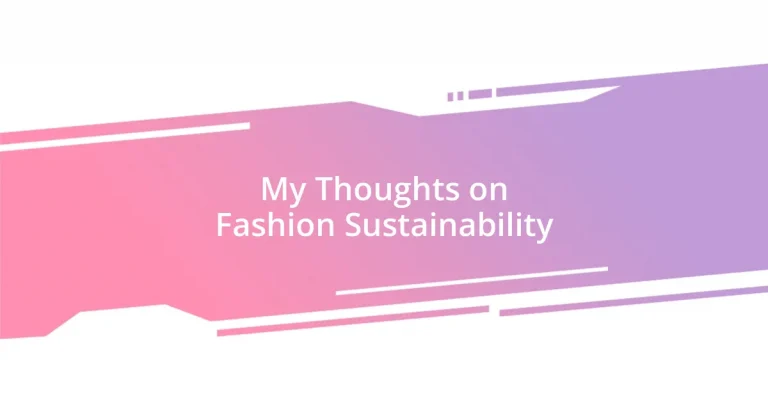Key takeaways:
- Understanding fashion sustainability involves recognizing the environmental and social impacts of clothing choices and seeking brands that prioritize ethical practices.
- Ethical fashion choices support fair labor conditions and sustainable materials, while reducing the industry’s environmental footprint.
- The future of fashion sustainability is driven by collective consumer actions and technological innovations that promote responsible practices within the industry.
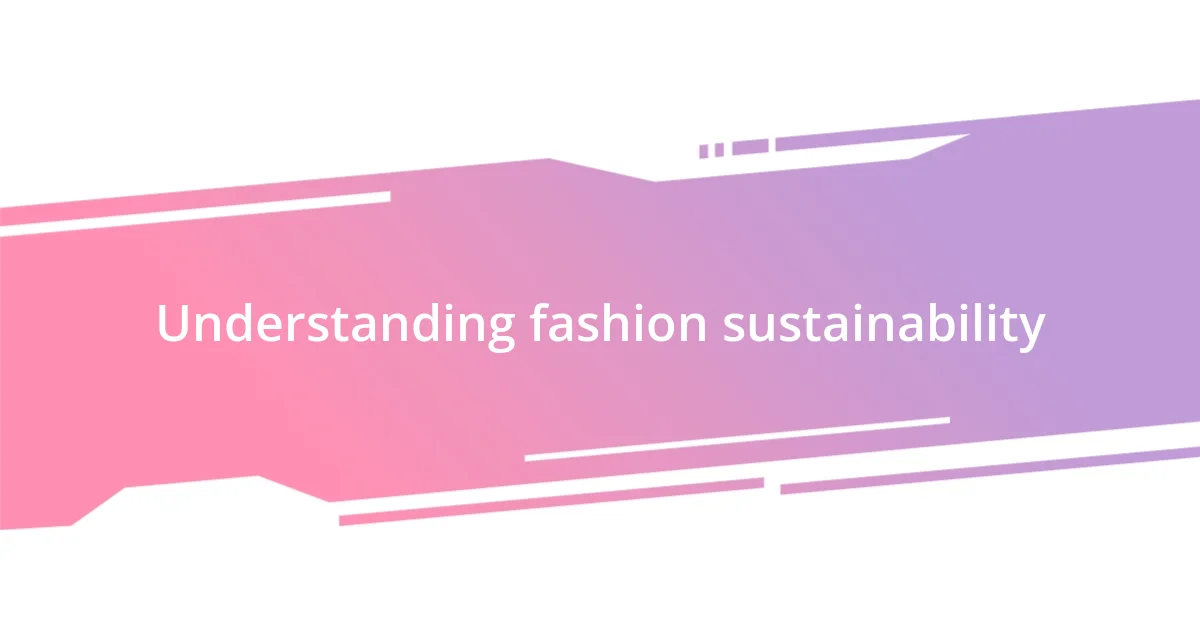
Understanding fashion sustainability
Understanding fashion sustainability means recognizing the impact of our clothing choices on the environment and society. I remember the moment I first learned about the devastating effects of fast fashion on the planet. It was like a light bulb switched on; I realized that every shirt I bought not only reflected my style but also contributed to a systemic problem.
When I think of sustainable fashion, I often wonder, what if we approached our wardrobes like a responsible relationship? It’s not just about wearing what we love; it’s also about considering where it came from, the labor involved, and how it will end up. This awareness tugs at my heartstrings, prompting me to seek out brands that prioritize ethical practices and eco-friendly materials—an effort to align my values with my choices.
The journey towards understanding fashion sustainability has also taught me the beauty of creativity in reinventing pieces I already own. Instead of always chasing the latest trends, I started experimenting with upcycling and thrifting, which turned into an enjoyable adventure. It’s incredible how our clothing can tell stories, and being mindful of this aspect encourages us not only to cherish what we have but to care for our planet too.
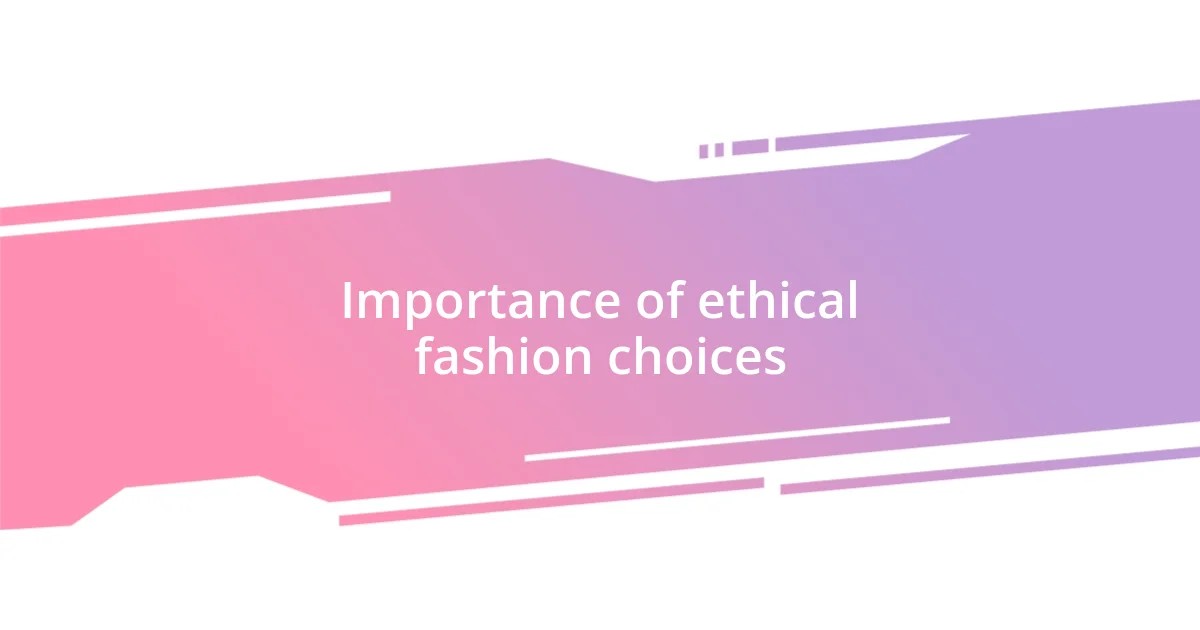
Importance of ethical fashion choices
Ethical fashion choices are crucial because they not only reflect our values but also have a tangible impact on the lives of workers around the globe. I recall a particular moment while volunteering with a local charity; I learned firsthand about the conditions many garment workers endure. Knowing that my purchasing decisions could either perpetuate suffering or help uplift communities really struck a chord with me.
Furthermore, making conscious choices in fashion helps reduce the environmental footprint of the industry. I remember sorting through my closet one day, realizing how many pieces I rarely wore. It motivated me to donate and invest in quality items that would last longer, demonstrating how each thoughtful choice contributes to sustainability in a significant way. By prioritizing ethical brands, I feel like I’m casting a vote for a healthier planet and a more equitable society.
Ultimately, ethical fashion is not just a trend; it’s a lifestyle choice that honors our planet and its people. When I choose to purchase from brands that prioritize sustainability, I’m investing in a brighter future. It can be as simple as researching a company’s practices or supporting local artisans. Every small step reminds me that I’m not just buying clothes; I’m making a statement with my choices.
| Ethical Fashion Choices | Fast Fashion |
|---|---|
| Supports fair wages and working conditions | Often exploits workers for low wages |
| Emphasizes sustainable materials | Typically relies on cheap, harmful materials |
| Encourages mindful consumption | Promotes excessive buying and waste |
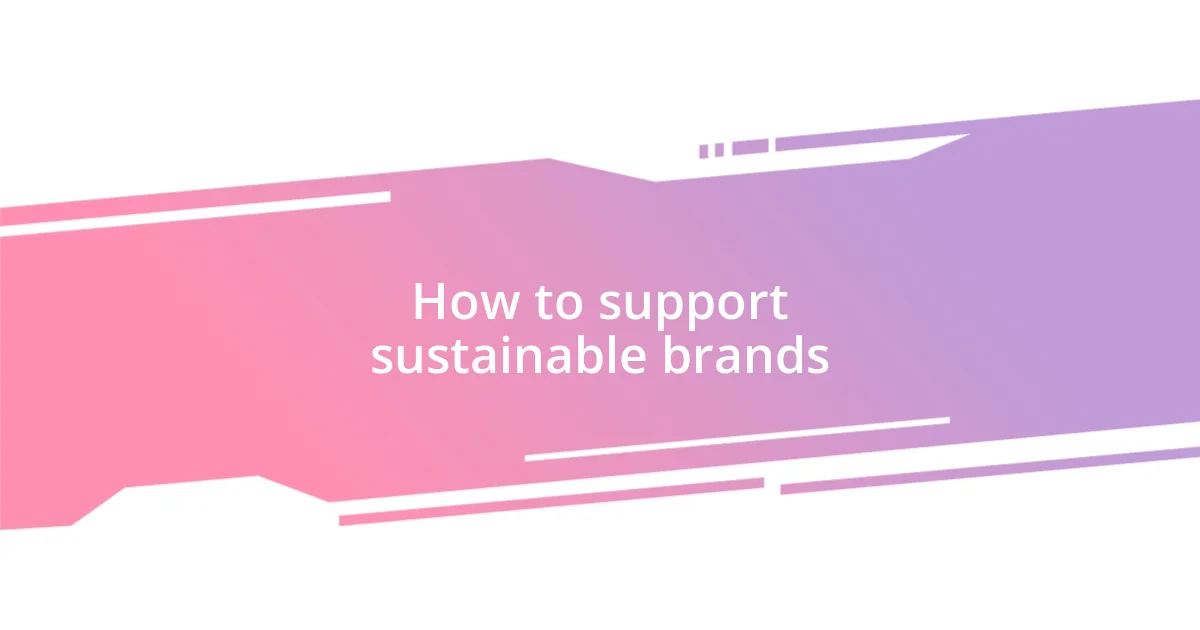
How to support sustainable brands
Supporting sustainable brands is a vital choice that can shape the future of fashion. I distinctly remember the thrill of discovering a local boutique that sources all its materials from ethical producers. It felt good to know that my money was contributing to positive change rather than lining the pockets of corporations that cut corners. By doing a little homework, I found that many sustainable brands align with my values, making the shopping process infinitely more rewarding.
Here are a few practical ways to support these brands:
- Research their practices: Look into a brand’s commitment to sustainability, such as ethical sourcing and production methods.
- Buy less, choose wisely: Focus on quality over quantity, selecting pieces you truly love and can wear over and over.
- Engage with the community: Follow and support sustainable brands on social media—your engagement can help amplify their message.
- Attend local markets: Purchasing from local artisans not only supports sustainable practices but also fosters community connections.
- Share your findings: Opening up a dialogue with friends about the importance of sustainability can encourage them to make better choices as well.
Each of these actions, no matter how small, helps build a more sustainable fashion industry. Remember, it’s not just about looking good—it’s about feeling good about what you’re wearing.
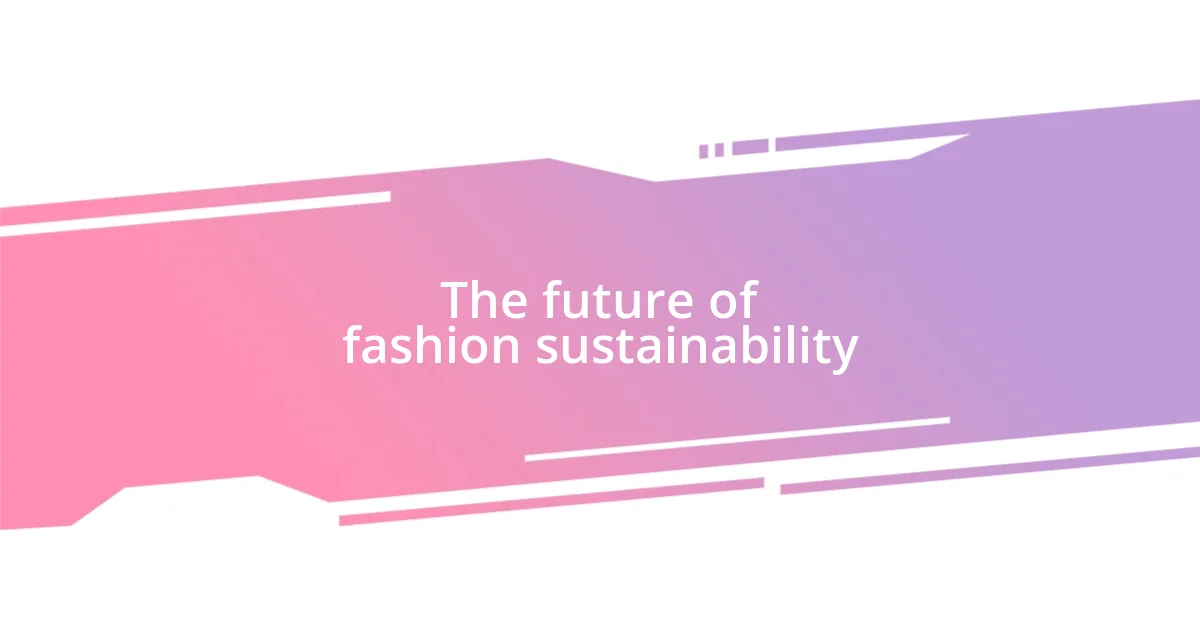
The future of fashion sustainability
The future of fashion sustainability is looking brighter, yet it requires collective action. I’ll never forget the moment I attended a panel discussion with industry leaders advocating for eco-friendly innovations. Their commitment inspired a sense of hope in me, making me realize that the push for sustainable practices is gaining momentum. It made me wonder: can our combined efforts really shift the tide toward a more responsible fashion landscape?
One aspect that excites me is the increasing use of technology in sustainable fashion. For example, I recently encountered brands utilizing artificial intelligence to predict trends without having to overproduce. It struck me that leveraging cutting-edge tech could significantly reduce waste while still allowing for creativity. How amazing would it be if the clothes we wear started to reflect not just our personal style but also our commitment to the planet?
Moreover, I believe that as consumers, we hold more power than we often realize. I recollect speaking with a friend who decided to become an “ethical shopper.” They shared how much more intentional their buying decisions became, leading to a drastic reduction in their wardrobe size. It’s eye-opening to think about how our choices can ripple through the industry, promoting change and encouraging brands to adopt more sustainable practices. Honestly, the future of fashion sustainability hinges on our actions today—are we ready to lead the charge for a more conscious tomorrow?












